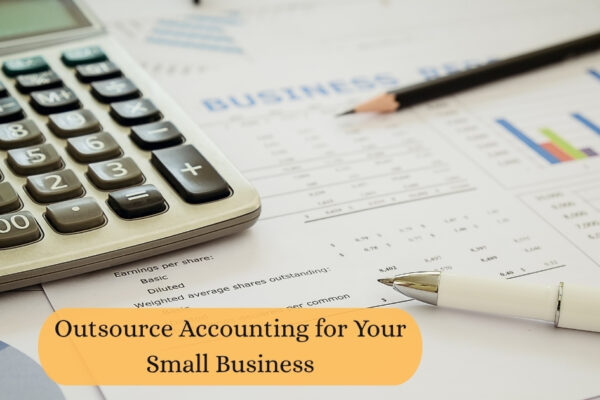AI in Bookkeeping: Ushering in a New Era of Financial Accuracy
Artificial intelligence is reshaping bookkeeping by automating routine tasks, enhancing accuracy, and delivering real-time financial insights. From expense categorization to fraud detection, AI tools are streamlining processes once prone to human error. Furthermore, as businesses seek greater efficiency and smarter decision-making, AI-driven bookkeeping is important for modern financial management.
From Clay Tablets to Code: The Evolution of Accounting
AI is rapidly changing the way bookkeeping is performed. One of the most significant changes AI brings to bookkeeping is the automation of routine tasks. Traditionally, bookkeepers spend hours entering data, categorizing transactions, and processing invoices. Thus, AI-powered software now handles these repetitive tasks with remarkable speed and precision. Such actions help reduce human error and free up bookkeepers to focus more on strategic aspects of financial management.
In addition to automation, AI provides real-time financial insights to enhance decision-making processes. AI tools analyze large volumes of financial data in real time, giving businesses up-to-date reports and key metrics instantly. It indicates that bookkeepers and business owners no longer have to wait for end-of-month reports to assess their financial position.
What is Demystifying AI?
In the world of accounting, AI refers to the use of advanced computational techniques enabling systems to simulate human intelligence and perform tasks carried out by accountants. However, AI in accounting isn’t just about automating routine tasks; it is about creating efficiencies, uncovering insights, and making the entire financial management process smarter.
1. What is AI in Accounting?
At its core, AI is the ability of machines to perform tasks that require human intelligence, such as decision-making, problem-solving, pattern recognition, and learning. In accounting, this translates into software tools that process vast amounts of financial data, predict trends, identify irregularities, and generate financial reports with less human intervention.
2. How does AI work in Accounting?
AI works in accounting by leveraging machine learning, a subset of AI, to analyze data and make predictions or automate processes. ML algorithms are trained on a wide range of financial data like invoices, receipts, and transaction records. This allows them to identify patterns, classify data, and even make choices based on those insights.
For example, AI-powered accounting software automates data entry by extracting relevant information from invoices or bank statements to categorize them. Thus, it eliminates the need for manual data inputs and minimises human errors. The more the system interacts with data, the smarter it becomes, improving accuracy and speed. Such a process is called “training” the AI model, where it continues to learn and refine its predictions as more data is processed.
Benefits of AI Tools in Modern Bookkeeping
The key benefits of using AI tools in modern bookkeeping are:
- Automated Reconciliation and Matching: AI tools streamline bank reconciliation by automatically matching transactions from bank statements to those recorded in the ledger. Instead of manually sorting through hundreds of transactions, AI systems use machine learning to suggest matches. Thus speeding up the reconciliation process and improving audit readiness.
- Faster Invoice and Expenses Processing: AI-powered optical character recognition (OCR) reads invoices, receipts, and financial documents to convert them into structured data. It automatically categorises expenses, links them to appropriate accounts, and suggests correct tax treatment. Thus, it reduces data entry time and ensures compliance with IRS guidance on expense classification.
- Cost-Effective Scalability for Firms: For CPA and bookkeeping firms managing multiple clients, AI allows for scalable operations without increasing headcounts. AI tools process vast amounts of transactions quickly and accurately. Thus making it easier for firms to serve more clients without sacrificing quality.
Transforming Client Services with AI-Powered Insights
AI is no longer a backend tool for automating transactions; it is now a client-facing asset that is revolutionizing how accounting and bookkeeping firms in the U.S. deliver services. The ways AI transforms client services are:
- Proactive Problem Identification: Rather than reacting to issues after they occur, AI systems can flag financial red flags, such as unusual cash burn rates, deteriorating margins, or delayed receivables, before they become a problem. Thus, it helps firms to contact clients proactively, positioning the accountant as a strategic partner, not just a record-keeper.
- Client Segmentation for Targeted Services: AI can segment a firm’s client base by revenue, industry, service usage, or risk profile. It allows the firm to tailor their offerings, prices, and outreach to each segment. Thus, it provides high-valued clients with more advanced services like KPI monitoring while automating tasks for smaller accounts.
- Rapid Onboarding and Setup: AI-driven platforms simplify client onboarding by extracting data from prior records, mapping charts of accounts, and auto-categorizing transactions. Therefore, it means that new clients can be set up faster, with fewer errors, allowing firms to scale services without stretching resources thin.
How CPA Firms Are Embracing AI?
AI is becoming a vital asset for Certified Public Accountant (CPA) firms of all sizes across the United States. From Big Four to small boutique firms, AI is transforming how services are delivered, how operations are managed, and how value is created.
- Big Firms are Building In-House AI Labs: Large CPA firms are investing heavily in AI R&D, creating dedicated innovation labs. These internal units focus on developing proprietary AI solutions tailored for complex audits, global tax compliance, and risk analytics. Such systems ingest massive volumes of data to identify discrepancies, optimize tax structure, and improve forecasting accuracy on a global scale.
- Smaller Firms Leverage Affordable AI SaaS Tools: Unlike large firms that build custom platforms, small CPA firms are turning to cloud-based software with built-in AI features. The features include QuickBooks with AI tagging, Xero’s anomaly detection, and Eleven’s automated workflows. Further, these tools offer cost-effective automation for tasks like bank reconciliations, expense categorization, and financial reporting without requiring a large IT infrastructure.
- AI is Driving Talent Reallocation: Both large and small firms are redistributing their human resources due to AI. Routine, repetitive tasks are handled by AI, freeing up staff to focus on higher-value functions like advisory services, tax strategy, and audit analysis. Such shifts allow junior staff to be upskilled sooner and partners to build deeper relationships with clients.
Final Thoughts
AI is revolutionizing online accounting and bookkeeping services by increasing efficiency, reducing errors, and enabling data-driven decisions. As firms of all sizes adopt AI, they’re better equipped to deliver timely insights and personalized support. Embracing this technology is important for staying competitive in today’s fast-evolving financial landscape.





